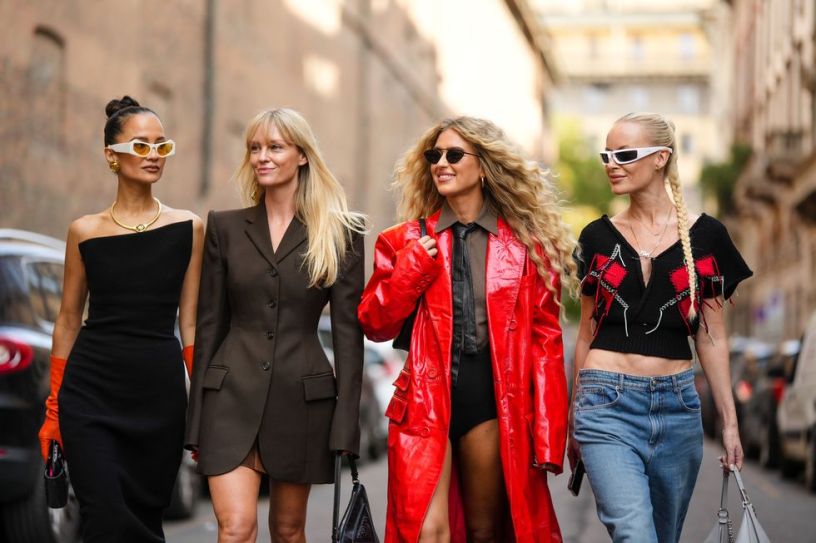Introduction:
In the bustling landscape of fashion, a quiet revolution is underway as sustainability takes center stage. The year 2023 witnesses a profound shift in consumer consciousness, with a growing number of individuals embracing eco-friendly fashion. Join us on a journey as we delve into the rising popularity of sustainable fashion, shedding light on the innovative practices of eco-friendly brands and the latest trends shaping the sustainable clothing landscape.
- The Rise of Conscious Consumerism: A Paradigm ShiftThe dawn of sustainable fashion is marked by a significant shift in consumer values. Today’s consumers are not just buying garments; they are investing in a vision for a more environmentally responsible and ethically sound industry. This shift in mindset is redefining the fashion narrative, emphasizing the importance of responsible choices in every purchase.
- Eco-Friendly Brands: Pioneering Change in FashionAt the forefront of this movement are eco-friendly brands championing sustainability as a core principle. These brands prioritize environmentally responsible practices, from sourcing materials to manufacturing processes. Notable names such as Stella McCartney, Reformation, and Patagonia lead the charge, setting industry standards and inspiring a new generation of fashion labels to follow suit.
- Innovative Materials: Fashioning a Sustainable FutureThe quest for sustainable fashion extends to the materials themselves. In 2023, fashion designers are exploring innovative alternatives to traditional fabrics. From organic cotton and hemp to Tencel and recycled polyester, the industry is witnessing a surge in the use of eco-friendly materials that reduce environmental impact and align with the principles of circular fashion.
- Circular Fashion: Closing the LoopCircular fashion emerges as a key trend, challenging the linear model of production and consumption. Brands are increasingly adopting circular practices, encouraging consumers to recycle, upcycle, and participate in garment longevity. Initiatives like clothing rental services and resale platforms contribute to a circular economy, reducing the environmental footprint of the fashion industry.
- Transparency and Accountability: The New Fashion ImperativeTransparent supply chains and ethical practices are no longer optional; they are imperatives for sustainable fashion brands. Consumers demand visibility into the production processes, sourcing of materials, and the overall impact of fashion on the environment. Brands embracing transparency build trust and credibility, fostering a more informed and conscientious consumer base.
- Capsule Collections: Quality Over QuantityThe concept of capsule collections gains momentum in 2023, embodying the principles of slow fashion. Instead of mass-producing trendy, disposable garments, brands are focusing on creating timeless, versatile pieces that stand the test of time. Capsule collections encourage a more intentional and mindful approach to dressing, fostering a sense of connection between consumers and their clothing.
- Tech-Driven Sustainability: Where Fashion Meets InnovationTechnology becomes a powerful ally in the pursuit of sustainable fashion. From 3D printing to artificial intelligence in design processes, technological innovations are streamlining production, minimizing waste, and opening new possibilities for creativity. The synergy between fashion and technology signals a promising future where innovation is harnessed for the greater good of the planet.
- Educating the Consumer: Building Awareness for ChangeAs the sustainable fashion movement gains momentum, educating the consumer becomes paramount. Brands are not only creating stylish, eco-friendly pieces but also actively communicating their commitment to sustainability. Initiatives like sustainable fashion campaigns, workshops, and educational content empower consumers to make informed choices and become catalysts for change.
Conclusion:
In 2023, sustainable fashion transcends being a fleeting trend; it is a powerful movement reshaping the very fabric of the industry. The convergence of conscious consumerism, eco-friendly brands, innovative materials, and technology-driven sustainability creates a harmonious narrative of positive change. As consumers increasingly embrace the principles of sustainable fashion, the industry is poised for a transformative journey towards a future where style and environmental responsibility seamlessly coexist. The growing popularity of sustainable fashion is not merely a trend; it’s a commitment to wearing the change we wish to see in the world.

